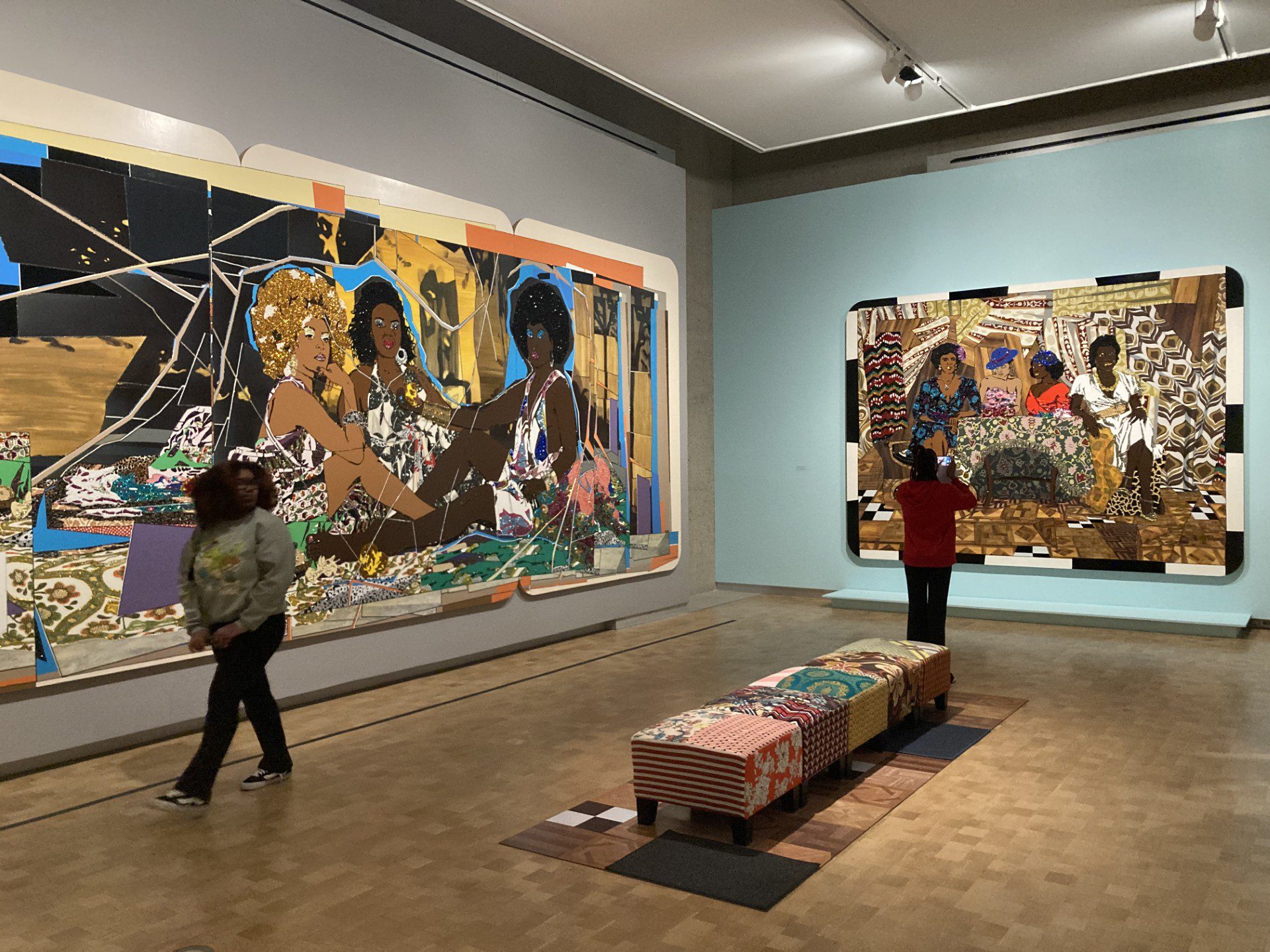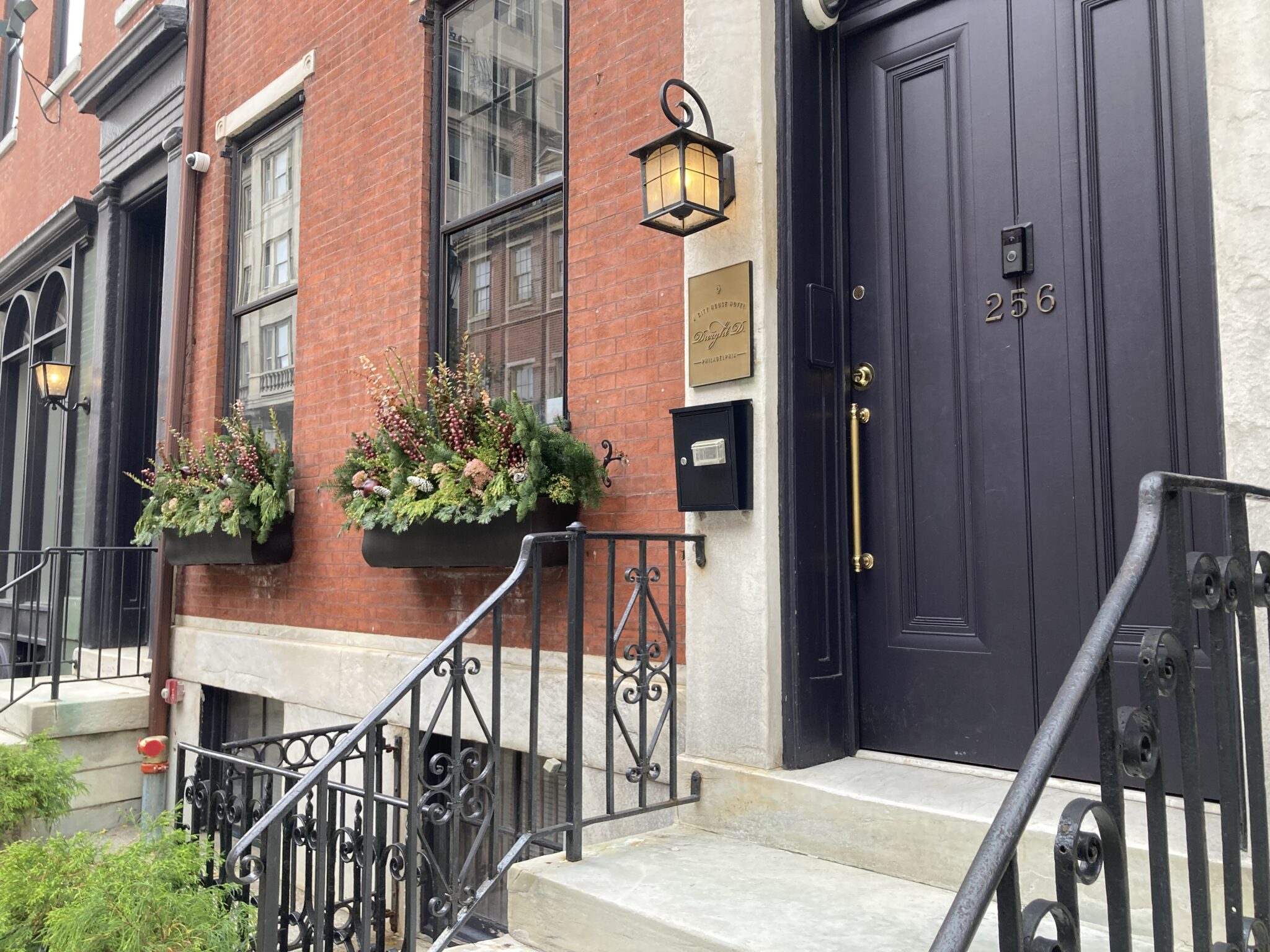Monday, December 23, 2024
Philadelphia’s Mummers Parade, the city’s New Year’s Day version of Mardi Gras, will step off at 17th and Market Streets at 9 a.m. on Wednesday, Jan. 1, looping to the right at City Hall to head south along Broad Street, more or less with abandon. Organized into string bands and flamboyantly costumed “brigades,” some 10,000 adults and children participate in the annual all-day spectacle.
It won’t be freezing this year, but you may still want to buy tickets for one of the Fancy Brigade Finale shows, held at 11:30 a.m. and 5 p.m. at the Pennsylvania Convention Center (1101 Arch St.).
Every other day in January, Center City’s historic street grid is far quieter and less congested. It is a good month for D.C.-area fans of art, theater and classical music to spend a night or two in the City of Brotherly Love.
Art
The collections of the Philadelphia Museum of Art (2600 Benjamin Franklin Parkway) and The Barnes (2025 Benjamin Franklin Parkway) are among the best in the world. At the Barnes through Jan. 12 is a provocative exhibition by leading contemporary artist Mickalene Thomas, “All About Love.” Putting that show in broader context, two others — “The Time Is Always Now: Artists Reframe the Black Figure,” at the PMA through Feb. 9; and “Shared Vision: Portraits from the CCH Pounder-Koné Collection,” at the African American Museum in Philadelphia (701 Arch St.) through March 2 — display a range of work by Black American artists and others from the African diaspora.

Installation view of “Mickalene Thomas: All About Love” at the Barnes. Photo by Richard Selden.
Over the three-day Martin Luther King Jr. weekend, Jan. 18 to 20, AAMP and the Museum of the American Revolution (101 S. 3rd St.) will offer special programming.
More art: Locks Gallery (600 Washington Square South), the city’s most distinguished, will display “Early Paintings, 1968-1989” by realist and longtime University of Pennsylvania professor John Moore from Jan. 3 to 31. Penn’s Institute of Contemporary Art (118 S. 36th St.) will reopen on Jan. 18 with “Nature Never Loses,” featuring work by Southern California-based artist Carl Cheng, who trained as an industrial designer in the 1960s.
Theater
Previews of “Driving Miss Daisy” start on Jan. 7 at the Walnut Street Theatre (825 Walnut St.). From Jan. 8 to 19, you can moonwalk over to the Academy of Music (240 S. Broad St.) for “MJ the Musical.” On Jan. 16, “Holy Grail of Memphis” — a world premiere by Michael Hollinger about a man who discovers a legendary bluesman’s recordings — will open at the Arden Theatre Company (40 N. 2nd St.) in Old City.
Classical Music
Isn’t it time you heard The Philadelphia Orchestra? The home of the Fabulous Philadelphians at the Kimmel Center (300 S. Broad St.) was renamed early this year for contralto and native daughter Marian Anderson. On Dec. 31, Marin Alsop conducts a New Year’s Eve concert celebrating the joy of dance. Once 2025 arrives: violist Choong-Jin Chang performs at a concert of Joe Hisaishi’s compositions, conducted by Hisaishi, on Jan. 3 and 4; Music Director Yannick Nézet-Séguin presides over Mahler’s Ninth on Jan. 9 and 11; Naomi Woo conducts a Lunar New Year celebration on Jan. 10; pianist Yuja Wang plays Tchaikovsky, with Nézet-Séguin also conducting works by Margaret Bonds and William Grant Still, on Jan. 16, 17 and 18; and violinist Carolin Widmann joins conductor Rafael Payare for a program of works by Tchaikovsky, Ravel and Saariaho on Jan. 23, 25 and 26.
A Place to Stay

A painting by Leon Graff at the Dwight D. Photo by Richard Selden.
Of the five squares symmetrically plunked down on Philadelphia’s original plan, Penn Square became the site of City Hall, Washington Square became part of Independence National Historical Park, Logan Square became a traffic circle with a fountain, Franklin Square became a playground and Rittenhouse Square became the manicured center of a lively and coveted neighborhood.
Two and a half blocks from Rittenhouse Square’s southeast corner, a pair of brick row houses from the 1840s are now the 11-room Dwight D Hotel (256 S. 16th St.), a City House Hotel owned by Vittoria and Kenneth Schutz. You guessed it, the hotel is named for Dwight D. Eisenhower; one of the row houses was the longtime headquarters (now up the block) of the Eisenhower Fellowships, an international exchange program established in 1953 as a “birthday gift” to the newly installed president.

The Dwight D. Photo by Richard Selden.
The Dwight D — a single row house before adding the adjacent one, which retains its jewelry-store windows — opened in 2014. Its first guests: the touring company of “Phantom of the Opera,” appearing at the Academy of Music.
The public areas reflect the talents of interior designer Vittoria Schutz. On the walls are abstract paintings, cityscapes by South African-born artist Leon Graff, framed pages from a vintage illustrated calendar. The couple opened up part of the first floor to look down on a space they hope to convert into a speakeasy. Out back is a long, lush garden.
Throughout the hotel are gorgeous mirrors and mantelpieces and a mix of antique and modern furniture. There is one suite, on the top level, that faces both the street and the garden. All guests get complimentary access to the fitness center at Forza Wellness, also on South 16th Street, and exclusive use of the property to sleep up to 25 guests is available for “microweddings” and other events.
The Dwight D’s surrounding blocks are the icing on the cake. “It is like living on Sesame Street,” says Vittoria Schutz, who regularly runs into the owners of the neighboring businesses (and their dogs), notably Italian BYOB restaurant La Viola and Belgian beer mecca Monk’s Café.